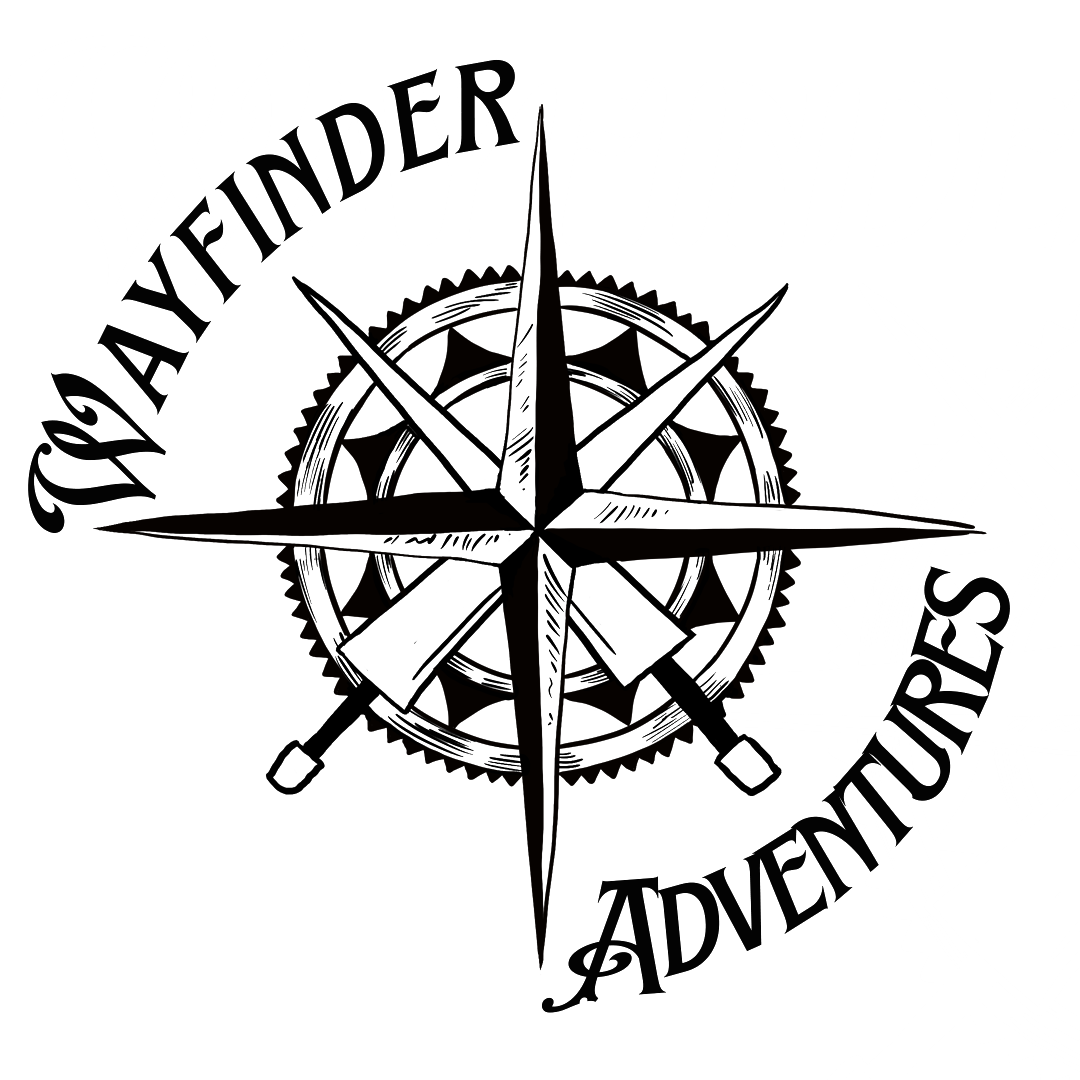Trust in Adventure Gaming
Obviously deep, intensely emotional, trusting relationships exist outside of LARP communities. The point here isn’t to claim that Wayfinder has some unique ability to provide participants with trust or friends or anything like that. The idea is more this: trust, like the realest kinds of trust, are formed through having intense experiences together. Through the Adventure Game we get the chance to simulate a lot of those intense experiences. I have lived one thousand lives in my time at Wayfinder, and the more invested I have been in each one the more I have grown from it. No piece of any character comes from anywhere but inside ourselves. This is something that comes up time and again. It takes an incredible amount of trust in a person, a group of people, or even a whole community to go deep into that, to explore those pieces of ourselves that we normally keep hidden or ignore altogether.
A couple weeks ago I promised to do a series of posts based exploring different types of trust that are directly relevant to Wayfinder and then promptly got sidetracked. I’m returning for the second of that series now. This week’s focus is trust and how it intersects with the Adventure game. It’s a complex relationship. There are a lot of factors of trust required just in setting up the Game. You have the most basic elements, for example trusting that people will play by the rules (reacting to swords and magic) and trusting that people will respect you as a player (building scenes with you and reacting to/building off your offers). There are also some much more complex trust relationships that go into the Game. There is A LOT of physical trust required in playing with a group of people. You are trusting people to chase you/fight with you (often in the dark or in the woods) in a safe and fun way. This kind of trust can be a challenge, but it’s something we work at all week long. The more contact based elements are things that trust workshops are specifically geared towards building to; whereas the elements based upon the rules are a trust that we work at in our game systems based workshops throughout the week (and here you thought CTF was just for fun).
There’s another important element to the relationship between trust and Game that is something we don’t go into quite as much. That is the fact that despite how much we put into building those relationships with each other before Game, like the actual interpersonal ones between our real selves, there is nothing that brings us together quite like an Adventure Game. Once you’ve stood next to someone on a battlefield, cried over their corpse, or literally died to save them there is a different kind of closeness between you. The trust established through having an intense in Game experience together is one that I have never found in any other setting. It’s hard to approach. You both (or all if there were more people involved in the scene/situation) know that something very real happened between you in the Game. Immediately after a Game that has one of those moments there is always a need to find each other, to talk about what happened, share the other side of the experience, or how that moment effected the rest of each player’s Game. But it doesn’t stop there. There are friends of mine I’ve had for years who we still think back to some of those moments as our most intimate, when our friendships moved from close to unbreakable.
During a Winter Game at the Ashokan Field Campus (a Game that I wasn’t particularly emotionally invested in prior to this moment) where my friend (and in Game mother) cried over my dead body until someone brought me back to life. From that moment the two of us held each other and cried in a room full of people who were holding us prisoner (don’t feel too bad, up until then we’d been some of the main bad guys). I’ve never been much of a public crier. It’ll happen, a tear here and there at an intense community circle or trust workshop, but this was loud, ugly crying. Sobbing on a hardwood floor in a room full of people who I was legally responsible for. It’s a moment I remember whenever I’m having a hard time processing my emotions, particularly in reference to other people. I was able to lean on the community in a way that I wouldn’t normally, to allow for an emotionally intense in Game moment because I trusted them to contain it within the Game understanding that my emotion was a function of character not mental state, and also to lower my guard and enter that place of trust because of the way that an Adventure Game is set up. The closeness that is brought about in those kinds of scenes, even if it is an unspoken kind, is one of the most important factors in binding ourselves together.
Written by Judson Easton Packard
Published 3/24/2017



